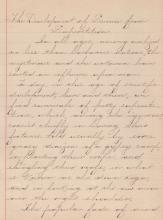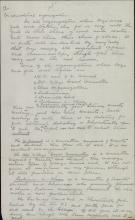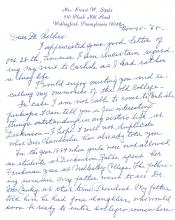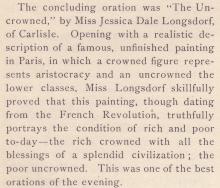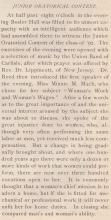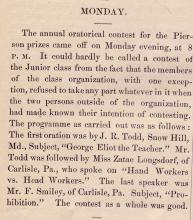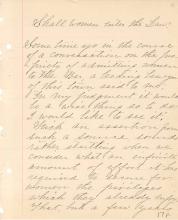"The Achievements of Our Age", an Oration by Mary Ann Humrich
In her senior oration "The Achievements of Our Age," Mary Ann Humrich discusses the many technological advances of the nineteenth century. In particular she argues that the electric light bulb, matches, electric automobiles, and the introduction of table manners revolutionized the era. She concludes her oration and wrote that "'The past is sublime but the present is sublimer.'"


